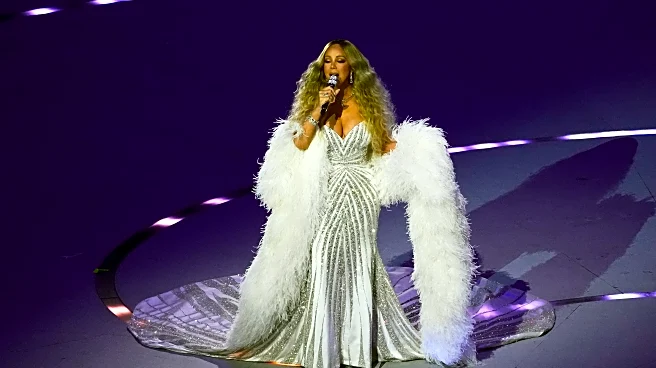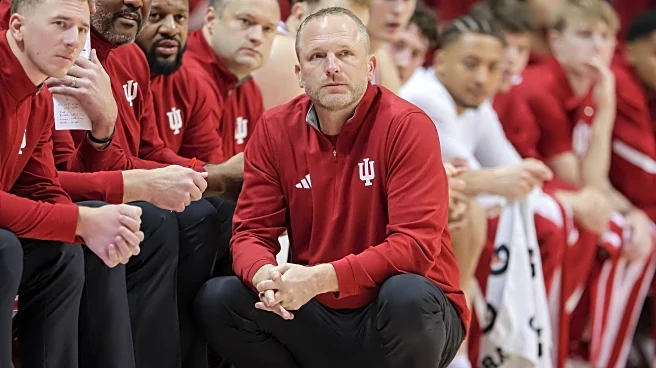Rapid Read • 8 min read
On the 80th anniversary of the atomic bombing of Hiroshima, aging survivors expressed concern over the growing global support for nuclear weapons as a deterrent. The anniversary, marked by a ceremony attended by 55,000 people, including representatives from 120 countries, highlighted the survivors' diminishing numbers and their average age now exceeding 86. Hiroshima Mayor Kazumi Matsui warned against the acceptance of military buildups and nuclear weapons for national security, citing conflicts such as Russia's war in Ukraine. UN Secretary General Antonio Guterres emphasized the importance of carrying forward the survivors' testimonies to build peace and prevent nuclear threats.
AD
The anniversary serves as a poignant reminder of the devastating impact of nuclear weapons and the urgent need for disarmament. With global tensions rising and nuclear deterrence gaining support, the survivors' call for peace underscores the potential consequences of nuclear proliferation. The event also highlights the international community's responsibility to learn from past tragedies and work towards a nuclear-free world. The survivors' diminishing numbers add urgency to preserving their testimonies and advocating for policies that prioritize peace and security.
The ceremony's emphasis on peace and disarmament may influence international discussions on nuclear policy. Survivors and advocates will likely continue to push for Japan to sign the Treaty on the Prohibition of Nuclear Weapons, despite its reliance on the U.S. nuclear umbrella. The event may also prompt renewed efforts by global leaders to address nuclear threats and promote disarmament initiatives. The international community's response to the survivors' message could shape future diplomatic and policy decisions regarding nuclear weapons.
The anniversary highlights ethical and cultural dimensions of nuclear weapons, including the moral responsibility to prevent future tragedies. It also raises questions about the role of historical memory in shaping contemporary policy and the importance of intergenerational dialogue in peacebuilding efforts. The survivors' testimonies serve as a powerful reminder of the human cost of nuclear warfare and the need for global cooperation to prevent similar events.
AD
More Stories You Might Enjoy














